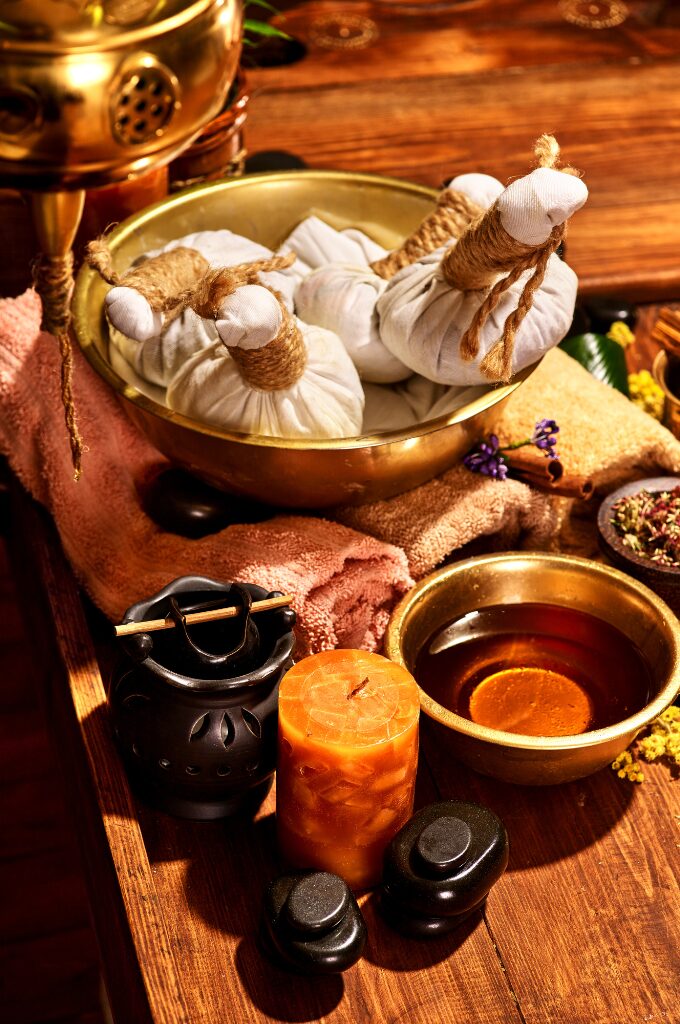Ayurvedic Treatment for Parkinson’s Disease
Parkinson’s disease is a progressive neurodegenerative disorder that may involve the movement of tremors, muscle hypertonicity, hypokinesia, and postural imbalance. In the Ayurveda system, it is Kampavata, which is a disease of Vata Dosha that leads to cell death at the level of the brain.
As this condition is treated with drugs in modern medicine, Ayurveda takes a different approach. In modern medicine, this patient is treated with drugs that give relief from symptoms. Talking about the Ayurvedic Treatment for Parkinson’s Disease, Ayurveda tries to strengthen the function of the diseased nervous system’s vasculature using herbal remedies, diet, yoga, detoxification, and Panchakarma therapy.
A single medicine cannot be found that can completely cure the complications combining tremors and motor dysfunctions and halt the progression of the disease in a manner that is less harmful to the patient’s quality of life.
Understanding Parkinson’s Disease
What is Parkinson’s disease?
Parkinson’s disease refers to the neurodegenerative condition that damages specific nerve cells responsible for producing dopamine in the brain and subsequently leads to loss of motor control over time.
On the contrary, it appears due to shaking, rigidity, and slowness in movement caused by nerve cell death. Ayurveda claims that Parkinson’s is associated with Vata dosha provocation, causing perturbation of the neuromuscular coordination as well as one’s ability to think clearly.
Symptoms and Challenges
Apart from the tremors and muscle soreness, postural imbalance and slow movement can occur. Eventually, patients may lose the capability to communicate with others, remain steady, or even perform swallowing. Within Ayurveda, these challenges stem from Vata imbalances that dominate the nervous system and result in weakness, limited physical control, and dementia.
Types of Parkinson’s Disease
There are three types of Parkinson’s disease: idiopathic Parkinson’s (the most prevalent out of these three without any known cause), genetic Parkinson’s (with inherited mutations), and secondary Parkinsonism (having a head injury, being exposed to toxins, or using certain medications).
Just like everything else, Ayurveda tailors every patient’s requirements by reducing oxidative stress, cleansing the nervous system, and rejuvenating the brain cells through herbs or other methods.
Ayurvedic Perspective on Parkinson’s Disease
This disease is referred to as Kampavata in Ayurveda and originates from a notable disturbance of the vata dosha where tremors, rigidity and motor control issues set in.
In Ayurveda, there is a focus on the reduction of Vata and an attempt to supplement the nervous system. This is achieved through Panchakarma which utilizes Abhyanga (oil massage), Shirodhara (pouring oil on the forehead), and Basti (medicated enema).
Natural sources of levodopa like Mucuna Pruriens alongside Brahmi and Ashwagandha have also shown amazing results in the treatment and preservation of a person’s health due to their neuroprotective and anti-inflammatory properties.
Such dietary changes like eliminating processed foods as well as yoga and meditation improve treatment outcomes. Implementing yoga along with a healthy diet is not only effective in treating symptoms but also beneficial in improving one’s quality of life.

Ayurvedic Remedies for Parkinson’s Disease Symptoms
Parkinson’s treatment in Ayurveda includes: shaking of the hands, the nervous system, and advancement of the disease slowed down.
Known as Kampavata in Ayurveda, Parkinson’s is caused by excess accumulation of Vata dosha which leads to the death of brain cells and loss of control over muscles. Ayurvedic remedies that include diet and lifestyle modifications aimed at normalizing Vata, improving brain activity, and cleansing the nervous system with the use of herbs and different therapies.

1. Herbal Medicines to Strengthen the Nervous System
Ayurveda suggests different herbs to help in nerve functions as well as nerve tissue decay. Both Brahmi and Shankhpushpi are well-recognized in Ayurvedic medicine to assist in memory recall, skill and nerve cell proliferation.Ashwagandha and Vacha help in controlling tremors, calming the nervous system and assisting in movement. Kapikacchu (Mucuna Pruriens), a herbal plant, is a natural source of L-Dopa which helps in increasing dopamine levels and improves the motor activity of Parkinsonian patients.2. Panchakarma Detox Therapies for Toxin Removal
Toxins gradually gather in the body owing to poor digestion and some abnormalities while metabolism takes place, which can aggravate the symptoms of Parkinson’s. Some treatments may eliminate toxins, for instance, Basti (medicated enema), Nasya (nose therapy), and Shirodhara (pouring of oil on the forehead).These combined therapies also help in alleviating stiffness, muscular rigidity, & tremors and in addition, more importantly assist in rejuvenating the nervous system alongside the blood circulation to the brain.3. Diet and Nutrition for Vata Balance
In managing Parkinson’s disease, the pacifying Vata diet is necessary. The use of ghee, whole grain, nuts, and herbal tea is recommended in Ayurveda medicine systems as they provide strength and nourishment while looking after the nerves.For oxidative damage reduction and brain cell destruction, anti-inflammatory spices such as turmeric, ginger and black pepper are key. Processed foods, excessive caffeine, and cold foods are to be avoided as they worsen Vata imbalance.4. Lifestyle and Yoga for Movement Control
The daily oil application and massage (Abhyanga) with Mahanarayan or Bala Taila medicated oils increase muscle strength and flexibility, therefore reducing stiffness and shivering. Yoga poses Tadasana (Mountain Pose) and Vrikshasana (Tree Pose), along with gentle Pranayama (breath exercises), build balance and calmness in the mind.5. Stress Management and Mind-Body Healing
One reason why stress could increase the severity of the symptoms associated with Parkinson’s is due to insufficient attention. Meditation combined with deep breathing along with Ashwagandha and Brahmi herbal adaptogens work to calm the nervous system. Along with healthy emotional and physical well-being, Shirodhara therapy (oil on the scalp) helps with anxiety, depression, and nervous tension.Parkinson’s Treatment in Ayurveda

Ayurveda for Managing Tremors in Parkinson’s Disease
Setting aside the emotional distress that Parkinson’s disease is often associated with, tremors tend to be one of the most difficult challenges this condition poses. They are caused by the obliteration of neurons, which produce dopamine in the brain.
In Ayurveda, Parkinson’s is categorized as a type of Kampavata, which stems from a derangement of Vata dosha. An Ayurvedic strategy intends to achieve Vata suppression in conjunction with Vata aggravation; muscles control central process inhalation damaging during oxidation. This is conducted with the aid of herbal medicines, Panchakarma processes, diet, and even yoga.

1. Herbal Remedies to Reduce Tremors
Like all forms of Ayurveda, this branch also uses herbs that deal with vata to help relax the nervous system as well as restore neuromuscular coordination. One of the best herbs is Kapikacchu because of its L-dopa’s ability to aid in movement and reduce shaking. In addition, Brahmi, Ashwagandha, and Shankar Pushpi are nerve-tonic herbs that help in relaxing involuntary muscles and increasing brain power.
2. Panchakarma Detox Therapies for Nerve Rejuvenation
Accumulation of Ama (toxins) in the body deteriorates remaining neurological symptoms. These nervous system detoxifying and neuromodulator-facilitating therapies include Basti (medicated enema), Nasya (nose), and Shirodhara (pouring oil on the head) panchakarma procedures.
They also decrease muscle rigidity and shaking. Other benefits include improved sleep, relaxation, and increased mental clarity.
3. Diet and Lifestyle to Support Nervous System Health
A Vata-supporting diet including healthy fat, warm foods, herbal teas, nuts, and ghee nourishes the brain and nerves. The avoidance of cold and dry foods stops further aggravation of Vata. Mahanarayan or Bala oil massage (Abhyanga) improves muscle coordination and strength, thus reducing tremors.
4. Yoga and Pranayama for Tremor Control
Gentle movements of yoga such as Tadasana (deep breathing with an upward stretch), Vrikshasana (tree stance), and some slow stretching motions are beneficial to the body’s flexibility, balance, and motor control.
Pranayama practices, such as alternate nostril breathing referred to as Anulom Vilom and Bhramari (humming bee breath), help relax the nervous system as well as naturally bring down tremors associated with Parkinson’s disease. Thus, natural Parkinson’s treatment in Ayurveda is effective.
Natural Parkinson's Treatment in Ayurveda
In Ayurveda, tremor-parkinsonism, also known as Kampavata, is approached by attempting to restore balance to Vata dosha while galvanizing the nervous system’s defences, removing toxins from the body, and refining motor skills.
Unlike our normal allopathic treatment of choice, which is a single drug treatment using Levodopa, Ayurveda has medicinal herb mixtures, aspects of clean fivefold Panchakarma detox therapy, dietary approaches to stop eating certain foods, and asana practices to physiologically alleviate the pace of the neurodegeneration more than naturally.

1. Herbal Medicines to Strengthen the Nervous System
Herbal pharmacology in Ayurveda is the solution for alleviating tremors, improving motor coordination, and better brain functioning. Kapikacchu (Mucuna pruriens) is an all-time great herb as it possesses L-Dopa, the parent compound of dopamine, which is responsible for improving muscle movements and diminishing muscle stiffness.
Neuroprotection is offered by Ashwagandha and Shankhpushpi, which enhances cognitive function and nerve tissue regeneration.
2. Panchakarma Detox Therapies for Parkinson’s
Imbalance in the body is the result of the accumulated amas, or toxins, especially in the nervous system. Aiwdic detoxification is aided by Panchakarma, which is exceptional in its results. Shirodhara aids patients suffering from PTSD by calming the nervous system, improving sleep, and relieving stress.
Basti helps strengthen the nerves while simultaneously nourishing the Bain along with enhancing the effectiveness of Nasya. Brahmi and Anu Taila Nasya’s cognitive enhancement abilities, in addition to reducing brain fog, are immensely useful.
3. Ayurvedic Diet for Parkinson’s Disease
A vata-pacifying diet plays a crucial role in managing Parkinson’s disease. Healthy fats, ghee, nuts, and warm-cooked vegetables greatly aid in the strengthening of the nervous system while assisting with the reduction of tremors as well.
Healing spices such as turmeric and ginger also do not let the Asiatic neurons suffer from oxidative stress. Sugary or heavily processed foods, as well as excessive caffeine, are best avoided, as these foods fuel further deterioration in neurological functions.
4. Yoga and Lifestyle Modifications
Tadasame (Mountain Pose), Vrikshasana (Tree Pose), and mild variations of yoga combined with breath work (Pranyama) are effective forms of exercise that help with balance, muscle strength, coordination, and improving overall mobility. Pranayama techniques like Anulom Vilom and Bhramari are very effective and help calm the nervous system while reducing tremors caused by Parkinson’s.
FAQs About Ayurvedic Treatment for Parkinson’s Disease
Ayurveda has the tools necessary to manage prominent symptoms, aid in alleviating further progression of the illness, and increase life expectancy. The use of herbal medicines, Kapikacchu, Ashwagandha, and Brahmi serve as aiding factors along with detoxification therapies, which are known as Panchakarma, that help in mobility and strengthening of the nervous system.
There are different types of tremors, and in Ayurveda, these tremors are tamed by Vata dosha balance and serve nutrition to the nervous system. Natural L-Dopa popularly known as Kapikacchu together with Shirodhara (medicated oil therapy) and Basti (medicated enema) are very helpful in dealing with uncontrolled movements as well as improving motor control and enhancing the functioning of dopamine, thereby lessening the severity of tremors.
Along with the therapies of Panchakarma come Basti and Shirodhara, as these two aid in the detoxification of the nervous system and reduction of stress in patients battling stiffness and tremors. Full-body regular medicated oil massages are also extremely useful in enhancing muscle flexibility and strengthening coordination among patients suffering from Parkinson’s disease.
For sure, having good fats and warm, nurturing meals, along with using stuff like turmeric and ginger, is helpful for the neurons and decreases symptoms too. Furthermore, yoga, meditation, and breathing (pranayama) help skill balance and coordination and provide mental clarity, which facilitates activities of daily living.
